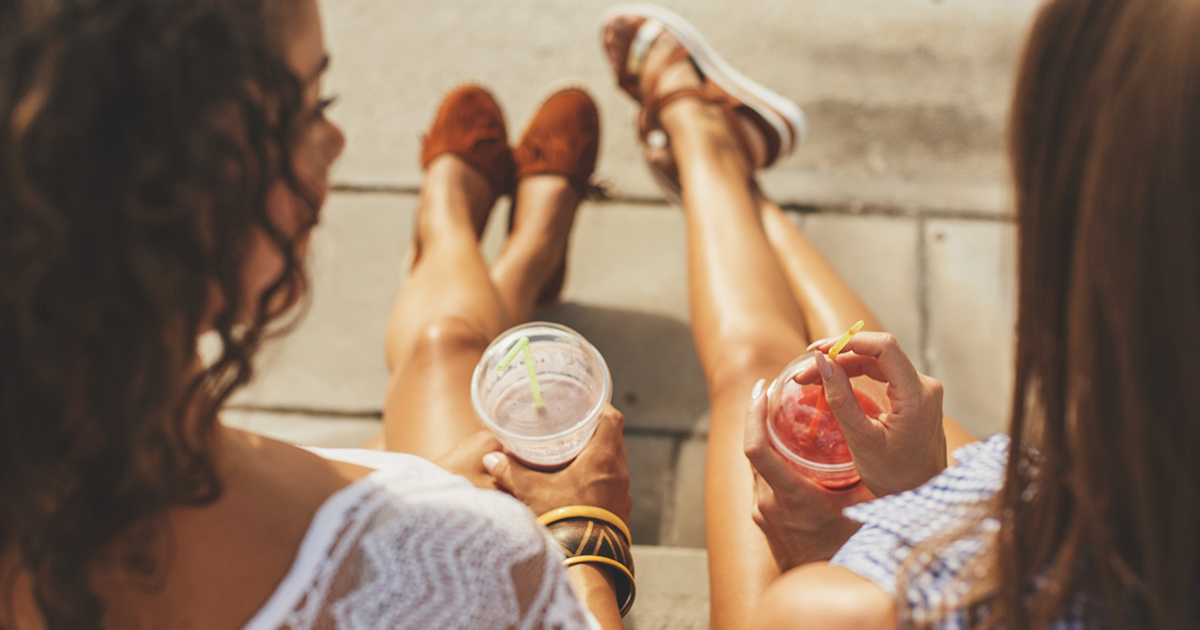A recent trend acknowledges the fact that even casual and moderate alcohol consumers can have that “I’m never drinking again” feeling, for one reason or another. If you’re a moderate drinker, maybe you’ve vowed to cut back on alcohol after a particularly bad hangover or you’ve thought hard about the effects alcohol is having on your life after a night of regrettable decision-making. Whatever the reason, once the immediate negative effects have passed, those feelings of conviction can wear off. But what if you really did take a break from alcohol? What if you quit completely?
This intermittent step that sometimes leads to long-term sobriety is known as the sober curious movement. Those who are “sober curious” can decide to take a break from alcohol for a set period, such as during “Dry January,” and may choose to eliminate alcohol from their lives completely.
This form of sobriety, even if temporary, is becoming increasingly popular in the United States. A poll of Millennials completed in December 2021 indicated 53% were participating in “Dry January” compared to only 38% in December 2020 and 37% in December 2018. 1 While it isn’t the complete sobriety promoted by AA and other 12 step programs, abstaining from drinking has many benefits, even if just for a short amount of time. 2
What Does It Mean to Be Sober Curious?
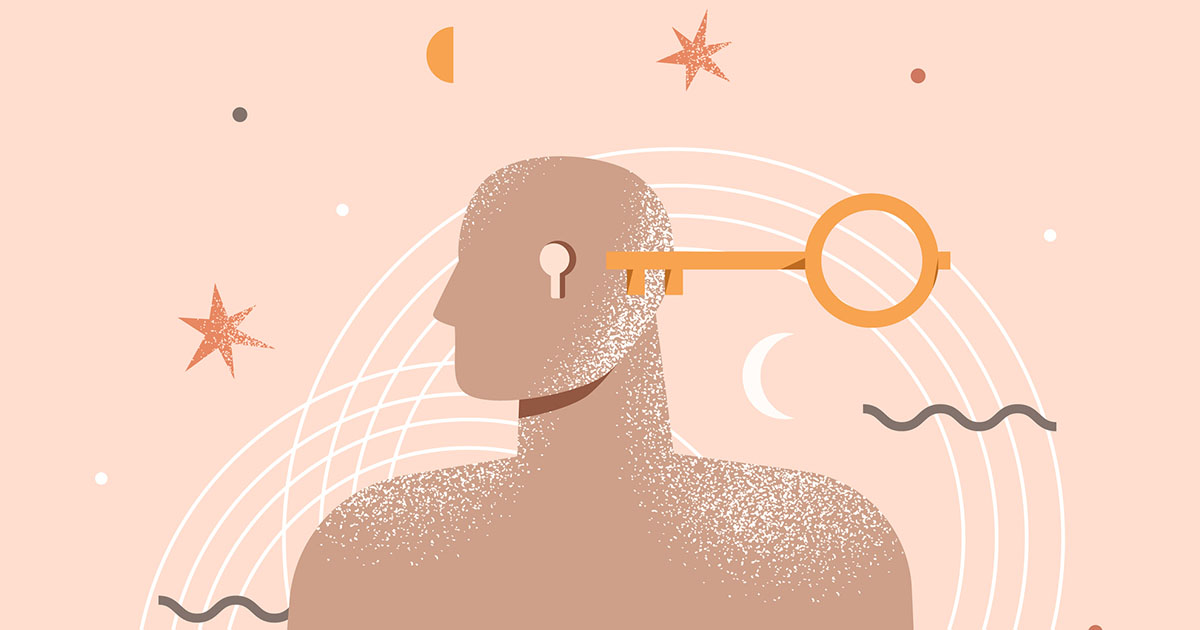
People who are sober curious make the conscious decision to change their drinking habits for mental and/or physical health reasons. It’s important for social drinkers to know that even non-alcoholics can have unhealthy habits associated with drinking alcohol. Taking time off drinking can allow you to view your relationship with alcohol with a clear head and provide the opportunity to set boundaries around alcohol that benefit your physical and/or mental wellbeing.
How Does Being Sober Curious Work?
Sober curiosity works for so many because it doesn’t have a strict set of rules. Instead, it is flexible and based on the individual. For example, some people may decide to avoid alcohol for a few weeks or a month, like during “Dry January” or “Sober October.” Others take a whole year to renew their lives away from alcohol.
You can also choose to not set a time limit and decide to abstain merely “for the time being.” No matter which you choose, if you find you are having a difficult time staying sober for the length of time to which you originally committed—or at all—you may want to consider whether you need more help.
If you can’t put down the bottle for more than a month, a week or a day even, it’s definitely time to think about seeking professional help.
Who Is the Sober Curious Movement For?
People in the sober curious community don’t necessarily overlap with those in the recovery community. Most are not likely to identify as an alcoholic, but still choose not to drink for a period of time. A person who is sober curious generally makes the choice to be sober for the physical and mental health benefits. In that regard, sober curiosity can be for almost anyone who is interested in seeing how their mind and body respond to taking time off from consuming alcohol.
While the sober curious community is very welcoming, it may not be for everyone. Those who have serious alcohol disorders, for example, may need to make the decision of being sober a long-term commitment from the get-go. For people with extreme cravings for alcohol, depression, withdrawal symptoms, or other associated conditions related to alcohol consumption, seeking treatment may better suit their needs as opposed to attempting sobriety on their own.
However, it’s worth noting that any time away from alcohol is better than no time at all, and it’s important to encourage any steps a person is willing to take to improve their health—even if that means exploring sober curiosity instead of total abstinence.
What Are the Benefits of Sober Curiosity?
“You don’t have to be an alcoholic to quit drinking.”
No matter what you are hoping to get out of a sober curious journey, you are likely to experience a variety of benefits one you choose to become sober curious.
Benefits to temporarily abstaining from alcohol include:
- Discovering alternative ways to ease stress and tension
- Increased energy
- Weight loss
- Improved sleep
- Improved likelihood to reducing long-term alcohol intake
- Better mood
- Healthier gut function 3
How to Be Sober Curious
Sober curious people often have the same goals as those in the recovery community, but their approach can differ significantly from traditional alcohol rehabilitation programs. Just as the duration of your sober curious journey is flexible, so is the plan for how to reach your destination.
You may choose to set boundaries at first, such as avoiding heavy-drinking environments like bars and parties or distancing yourself from acquaintances with whom you often drink. Others enjoy exploring the new hobbies that replace the time spent drinking and will immerse themselves in the sober curious community in person or on social media.
Here are a few ideas for you to try:
Explore New Hobbies and Wellness Routines
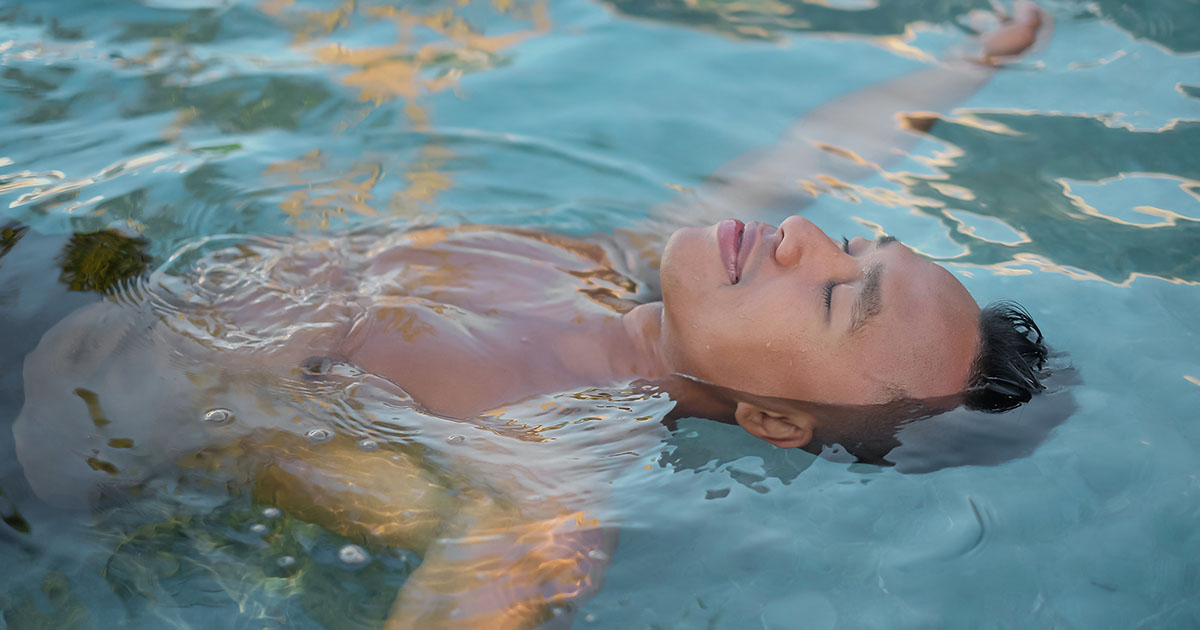
Depending on how much time you spend drinking, you may find yourself wondering how to fill that time after making the choice to become sober curious. Exploring new hobbies and wellness activities during this time is beneficial for several reasons. Mental health benefits of hobbies include reductions and improvements in several different areas. 4
- Stress
- Depression
- Anxiety
- Blood pressure
- Weight
- Heart rate
- Overall well-being
- Social connections
- Personal development
Many people choose traditional hobbies, such as learning a new art form, sport, or physical activity. Others choose to incorporate wellness practices into their sober-curious lifestyles, such as journaling, meditation, or yoga. If general wellness is a good fit for you, there are a variety of books and apps available to guide you to starting a wellness journey, depending on which practices you’d like to incorporate into your routine.
Benefits of participating in health and wellness practices include:
- Increased self-knowledge
- Stronger relationships and connections with others
- Professional optimism
- Improved personal health and wellness 5
Invest Time in Neglected Relationships and Interests
Rather than focusing on not drinking, you may decide to invest time and energy into relationships and other interests you once enjoyed now that you have more time on your hands. Make it a priority to check in with friends and family you haven’t spoken to in a while and invest in the relationships that bring you joy that you might have been neglecting. Revisit hobbies you once enjoyed, tackle the puzzle that has been sitting on your shelf, or dust off the guitar in the corner. Reconnect with whoever, or whatever, brings you joy, other than alcohol.
Immerse Yourself in the Sober Curious Community
Before you decide to explore what it means to be sober curious, you might want to explore the sober curious movement a little more. A great way to find out more about both the movement and the community is to immerse yourself into it. There are more and more sober social groups popping up around the country, and a Google or social media search may lead you to one near you. If you can’t find a local group that already exists, consider starting one of your own by putting out feelers in a social media post or putting up flyers advertising a sober get-together.
Immersing yourself in the sober-curious community can also easily be done online with social media accounts dedicated to sober curiosity. By unfollowing accounts that promote drinking and following sober curious accounts, you can surround yourself with like-minded people and reduce the temptation to drink.
Check out sober-curious creators on your favorite platforms:
- @rethinkingdrinking features mocktail recipes, empowering messages, and reviews for non-alcoholic options.
- @better_life_guy connects with his followers by sharing information about his sober living, as well as creates content that other sober curious people will relate to
- @happiestsober shares confessions about the negatives of alcohol and encouraging posts that start meaningful conversations between followers.
Podcasts
- Seltzer Squad: Staying Sober in the City is hosted by two women who discuss topics around choosing sobriety while interviewing sober guests about their journeys to sobriety.
- Sober Curious is hosted by the author of the book with the same name. The podcast features interviews with guests discussing their relationships with alcohol and how to navigate living as a sober person in a world full of booze.
- Generation Dry: For the Sober & Sober Curious is centered around mental health and addresses topics and stigmas associated with choosing sobriety.
TikTok
The number of TikTok accounts dedicated solely to sober curiosity is just beginning to rise. Some creators who already touch on the subject frequently or have great resources worth checking out include:
Jim Haggerty, our founder, also recently started his own sober focused TikTok account
He shares stories from his own addiction recovery journey to hope, healing, forgiveness, awareness & change. Check it out!
Tips for “Sober Curious” Success
Being sober curious in a world that sometimes seems obsessed with alcohol can be easier said than done. Each person will experience unique challenges as they begin their sober curious journey but having some plans in place can help to make the adjustment easier.
Here are some tips to help you along the way:
Find Alternative Beverages to Enjoy
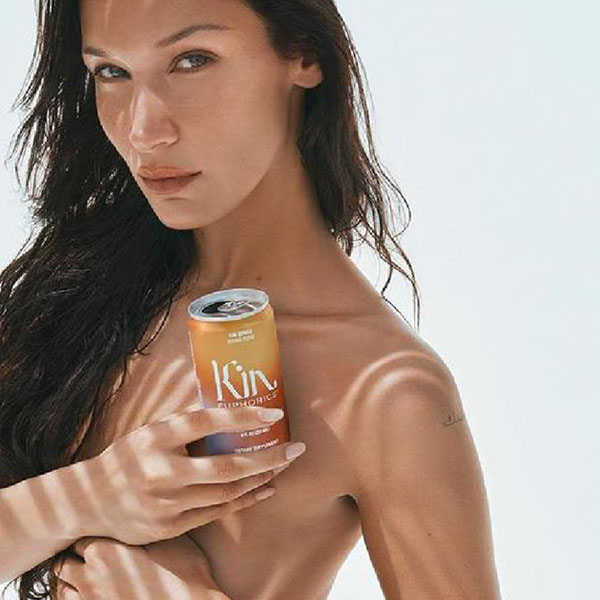
Kicking booze doesn’t mean you’re relegated to a life of water and soda. There are increasingly more “dry drinks” becoming available for the sober and sober curious that have great flavor and are fun to drink.
For example, Kin Euphorics, the non-alcoholic beverage with adaptogenic herbs, nootropics, and botanicals that’s at the forefront of the sober curious movement. Bella Hadid, model and friend of ECHO Recovery, became co-founder and partner of Kin Euphorics after first trying a can at a low point in her own journey. She was anxious, had brain fog due to her Lyme disease, and was exhausted from working and traveling constantly. Drinking made her feel even more depleted, more low energy. (As it does for most of us: Alcohol affects the serotonin levels in the brain, which can worsen anxiety.) And to be able to execute on set, she couldn’t be hungover.
When she tried brand’s Lightwave, a calming, stress-relieving alternative to an evening glass of wine (with sparking notes of lavender, vanilla, and passionflower) — that helped her to cut out drinking. Fast-forward two years, and Hadid is now officially a co-founder and partner of Kin Euphorics alongside CEO Jen Batchelor.
Mocktail Recipes Using Kin Euphorics
Create your own “Kintails” using Kin made to mix products. Such as the Kin Classic:
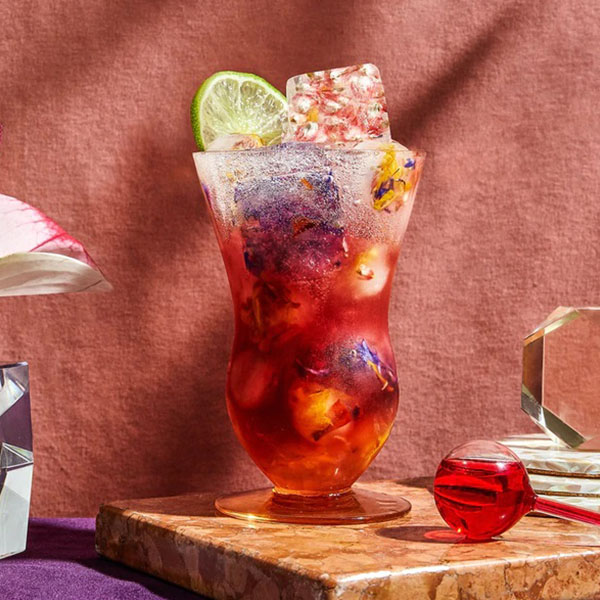
Image Credit: kineuphorics.com
- 2oz High Rhode
- 0.5oz of lime juice
- 1.5oz of tonic water
- 1 lime
- Edible flower (optional)
- Cubed ice
Directions
Pour Kin High Rhode over ice in a highball glass. Add lime juice and stir for 10 seconds. Add a scoop of fresh ice and top with tonic. Serve with a lime wheel and optional edible flower.
Who would miss the alcohol with all this?
Have a Plan For Saying “No”
If you continue living your life as close to normal as possible, it is likely you’ll be offered alcohol at some point. A simple, “no, thanks” should be sufficient, but if it isn’t you may want to have a backup plan in place regarding how to tell people you don’t drink. Simple excuses, such as having to wake up early the next morning or avoiding drinking and driving, tend to work well.
Build a Support System
You don’t owe anyone an explanation as to why you’re joining the sober-curious community. Still, consider letting close friends and family know you’re testing the waters of sobriety, and that you would appreciate their support in your efforts. Finding like-minded individuals and immersing yourself in the sober community whether online or in-person can also be helpful.
Track Your Progress
There are several apps available that track progress for general goals, as well as trackers specifically designed for tracking sobriety. Find one that motivates you and keep track of your progress. Celebrate milestones by investing in your hobby or sharing the news with friends and family.
Sober Curious? Just Try It!

If you’ve been sober curious, the best thing to do is just give it a try. Set a realistic or open-ended goal and reflect on how going alcohol-free makes you feel. Use your clear headspace to determine if you need to set boundaries when it comes to drinking, or if you’d like to continue with a sober lifestyle for the long term.
What do you have to lose? Your next hangover?
Resources:
- YPulse. (2022). How Young People Are Getting More Sober-Curious, In 2 Charts. YPulse. Retrieved April 27, 2022, from https://www.ypulse.com/article/2022/01/11/how-young-people-are-getting-more-sober-curious-in-2-charts/
- Luna, K. (Host). (2020, February 1). Sober curious (No. 101). In Speaking of Psychology. American Psychological Association. https://open.spotify.com/episode/3SpD3tCu3t8JwQYp0ja1D7
- Whiteman, H. (2016). Going dry for January? How reducing alcohol intake can benefit health. Medical News Today, December 21. Retrieved April 27, 2022, from: https://www.medicalnewstoday.com/articles/314875.php.
- Parkhurst, E. (2021, October 25). How Hobbies Improve Mental Health | USU. USU Extension Publication. Retrieved April 27, 2022, from https://extension.usu.edu/mentalhealth/articles/how-hobbies-improve-mental-health
- Fiona L. Cosgrove, Sarah Corrie & Ruth Q. Wolever (2022) An exploration of personal benefits reported by students of a health and wellness coach training programme, Coaching: An International Journal of Theory, Research and Practice, 15:1, 85-101, https://doi.org/10.1080/17521882.2021.1890167
Jenny Weatherall is the co-owner and CEO of Eminent SEO, a design and marketing agency founded in 2009. She has worked in the industry since 2005, when she fell in love with digital marketing… and her now husband and partner, Chris. Together they have 6 children and 3 granddaughters.
Jenny has a passion for learning and sharing what she learns. She has researched, written and published hundreds of articles on a wide variety of topics, including: SEO, design, marketing, ethics, business management, sustainability, inclusion, behavioral health, wellness and work-life balance.
